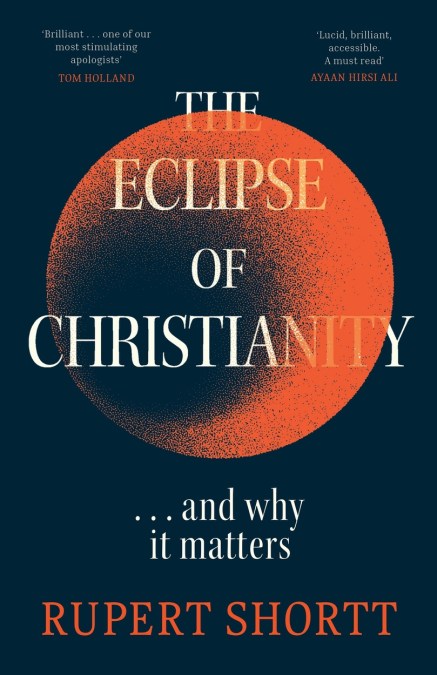A call for Christianity to recover its confidence
The mainstream Churches are faltering – or even at risk of dying out – in their Western and Middle Eastern heartlands. Surveys confirm that only a minority of people in a country such as Britain now claim Christian allegiance. The pattern is being matched in neighbouring societies. At the same time many opinion formers preach secularist ideology with a self-confidence shading into dogmatism. Others, unsure of their moorings, feel some residual attachment to spirituality, while being sceptical about the existence of God and other articles of belief.
Yet church teaching remains intellectually robust, as well as inspiring a transformative global presence. In this major and wide-ranging international study – both a report on the unsettling consequences of secularisation and a defence of a creed too often belittled by its opponents – Rupert Shortt outlines Christianity’s fading profile in the present, but also argues compellingly that Europe’s historic faith remains critical to the survival of a humane culture.
The mainstream Churches are faltering – or even at risk of dying out – in their Western and Middle Eastern heartlands. Surveys confirm that only a minority of people in a country such as Britain now claim Christian allegiance. The pattern is being matched in neighbouring societies. At the same time many opinion formers preach secularist ideology with a self-confidence shading into dogmatism. Others, unsure of their moorings, feel some residual attachment to spirituality, while being sceptical about the existence of God and other articles of belief.
Yet church teaching remains intellectually robust, as well as inspiring a transformative global presence. In this major and wide-ranging international study – both a report on the unsettling consequences of secularisation and a defence of a creed too often belittled by its opponents – Rupert Shortt outlines Christianity’s fading profile in the present, but also argues compellingly that Europe’s historic faith remains critical to the survival of a humane culture.
Newsletter Signup
By clicking ‘Sign Up,’ I acknowledge that I have read and agree to Hachette Book Group’s Privacy Policy and Terms of Use
Reviews
A brilliant book, comprehensive in scope... Shortt presents a compelling case for a Christian vision of what it means to live well. An extraordinary tour de force, and one of Shortt's best pieces of writing. Utterly compelling.
A persuasive and elegantly written analysis of one of the most important cultural shifts of recent times.
Compulsory reading for all who claim Christianity is dead... To lose Christianity is to lose grounds for believing in human dignity, human rights and human equality: this is a strong case for a return to our sources.
A brave and splendidly ambitious case both for Christians and secularists to take Christianity seriously, in a Western world more desperate than it acknowledges for soundly based principles and hopes.
Shortt's careful research and analysis of the religious and spiritual yearnings of a secular age, and the way churches are responding provide rich food for thought. His central question of how we might recover sight of the transcendent in a time that feels adrift is of fundamental importance.
A brilliant survey of Christianity's decline in Britain - how it's happened, and why it matters - by one of our most learned and stimulating apologists.
Lucid, brilliant, accessible. A must read!
Rupert Shortt is always clear, cogent, compassionate, flawlessly reasonable and perfectly informed. Whether you feel tempted to dismiss Christianity or called to defend it, you must read this book.
Wide-ranging, readable, and forthright, Shortt offers an acute analysis of the problems and prospects facing Christian faith today.
Shortt has an admirable gift for making the obscure lucid.
Shortt is world class
One of the UK's most thoughtful and self-effacing religious commentators
Shortt is in a line stretching back to C. S. Lewis, Dorothy Sayers, and G. K. Chesterton.

